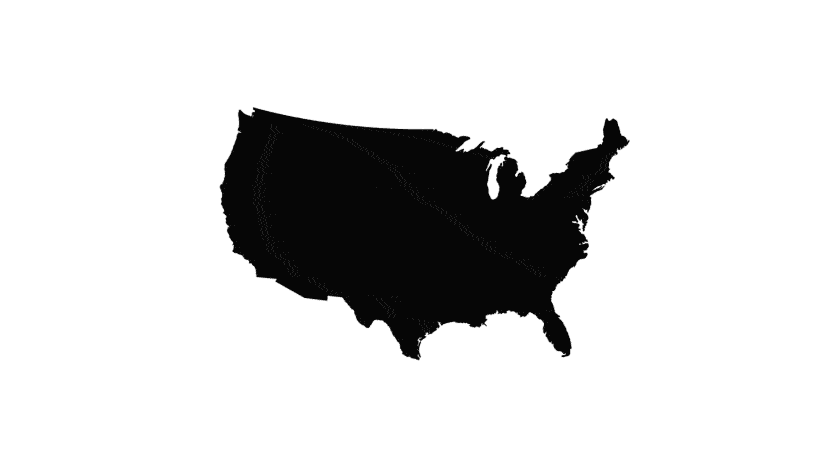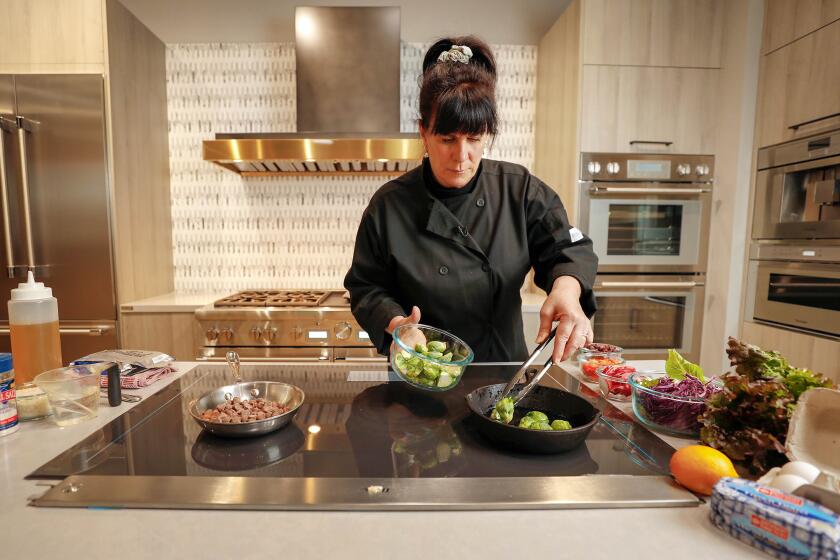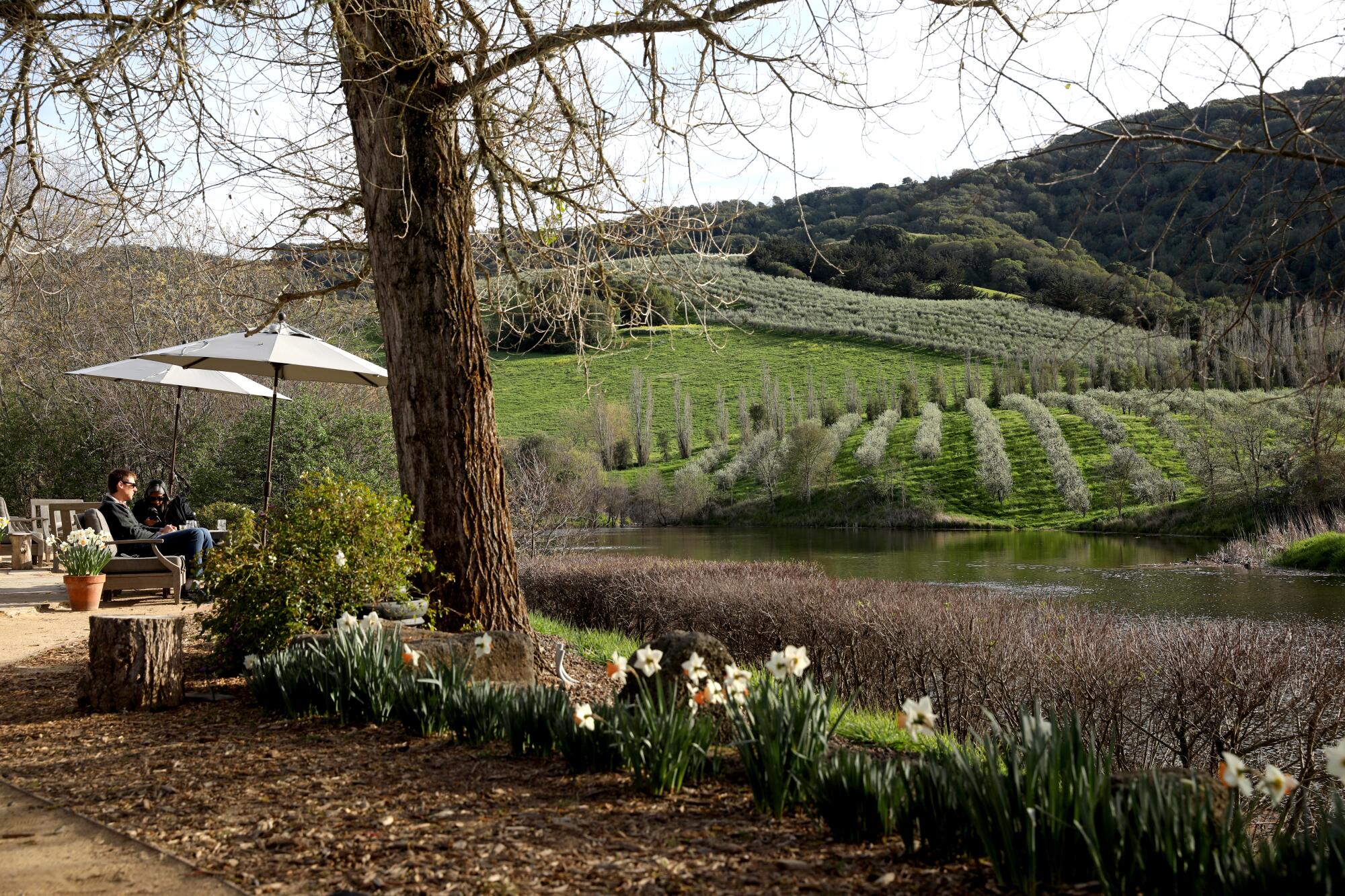
- Share via
PETALUMA, Calif. — With its verdant hills full of fruit trees, calming ponds and tastings of an olive oil so precious it is typically drizzled rather than poured, McEvoy Ranch could be mistaken for the Italian countryside.
That’s only fitting. Every tree planted in this three-decade-old family operation, which helped put California olive oil on the culinary map, can be traced back to Tuscany or Puglia.
The McEvoy family, along with other Northern California olive oil artisans, have imported something else from Europe: the idea that their regional brand is sacred — much like Italians with their Parmigiano-Reggiano or the French with their Champagne. But in this case, the brand is California extra virgin olive oil, a product connoisseurs seek out for its pungency and pepperiness.
A new state law punishes those who improperly use the California name to peddle oil from elsewhere.
“It is extremely important we protect the California brand,” said Samantha Dorsey, president of McEvoy Ranch, where its signature extra virgin oil, milled in-house, sells for around $90 a liter.

Today, you can find California olive oil in stores across the country. The product is highly sought out by connoisseurs for its pungency and pepperiness. But what does it mean when you see “California” on the label of a bottle of olive oil?
The movement that led to the new law triggered one of the biggest food fights in California since Napa vintners got the state to ban charlatans from marketing their wines with the region’s name. It has implications extending far beyond the scenic olive groves of Northern California, drawing into the debate food safety advocates, global marketing consultants, even hedge fund players who see potential for big profits in products labeled as Californian.
Electric cars, climate credit schemes, diverse boardrooms and legal weed: How California exports its ideas and policies across the U.S.
The push by the growers for strict rules on what can and cannot be labeled California olive oil “goes with the growing interest of all things gourmet and culinary,” said Larry Olmsted, author of “Real Food, Fake Food,” a book about food fraud. “I think we are going to see more of this around the country.”
Food industry players worldwide have closely watched California’s dispute between boutique operations and the nation’s olive oil giant, Chico-based California Olive Ranch. Backed by tens of millions of dollars from equity firms and institutional investors, California Olive Ranch has industrialized olive oil production in the state, replacing handpicking with machines and supplanting the traditional olive grove with a method called super-high-density planting.
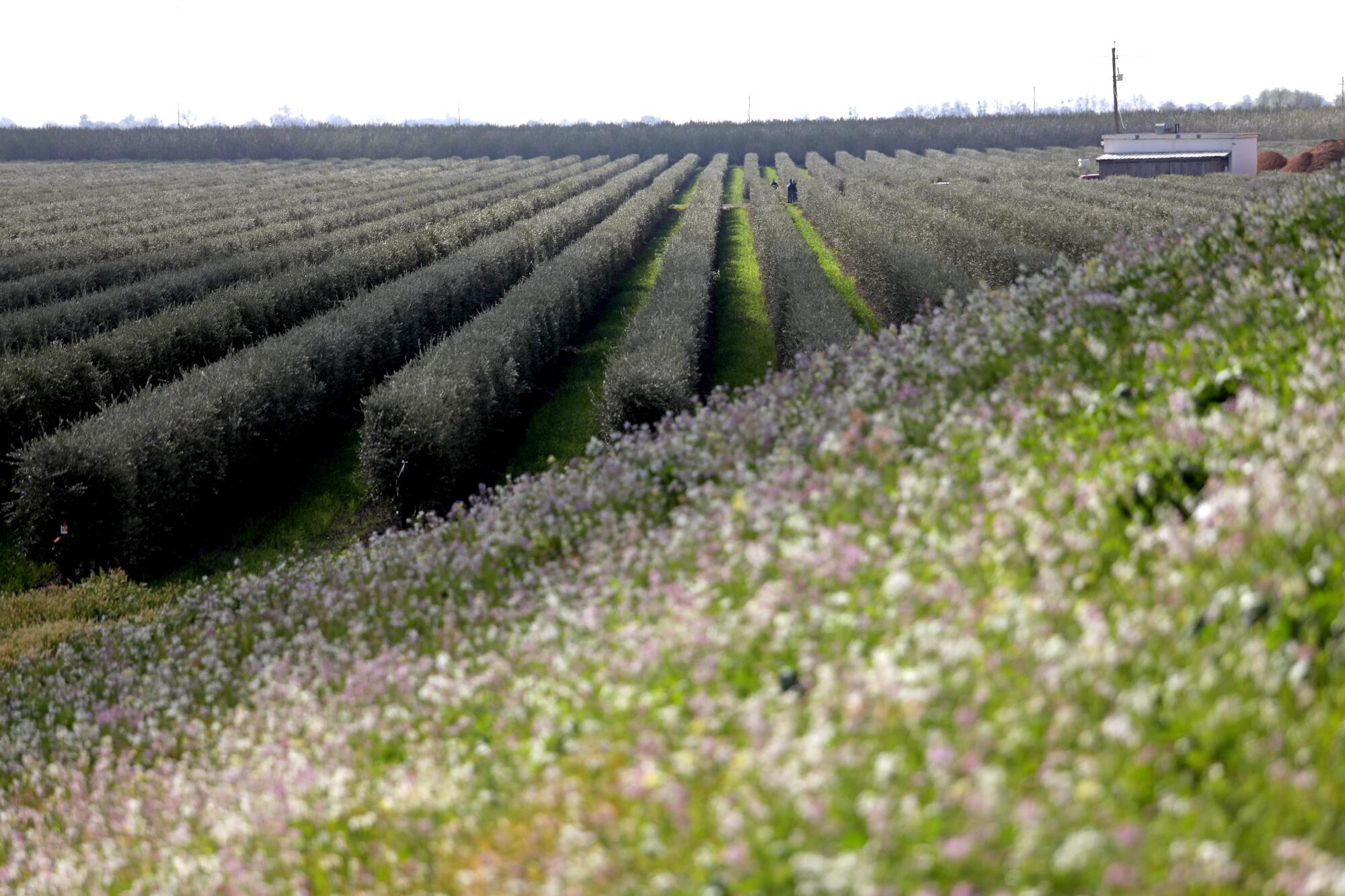
Its lower-cost bottles are on the shelves of 30,000 big-box stores, supermarkets and other retailers around the country. But the labels on its Global Blend had to be changed with the new state law that mandates the word “California” — even in a brand name — cannot be any bigger on the bottle than the type used to disclose other places where the olives came from.
Fights have raged over the use of place names on food labels for more than a century. In the 1890s, according to Thomas Gremillion, director of the Food Policy Institute at the Consumer Federation of America, the issue driving the labels was often food-borne illness.

Subscribers get exclusive access to this story
We’re offering L.A. Times subscribers special access to our best journalism. Thank you for your support.
Explore more Subscriber Exclusive content.
“People knew that there were epidemics tied to food from one region or a certain country,” Gremillion said. Later there would be concerns about pesticides and chemicals used in various locations. Patriotism and regional pride, of course, have long played a role.
Such issues still underlie some labeling disputes. But the laborious efforts of artisan producers whose work helps turn a brand into something consumers seek out are increasingly a factor. In the case of California olive oil, it got personal.
California Olive Ranch began selling a blend made with olives from outside California not long after investors seeking lucrative returns, including Harvard University, poured many millions of dollars into the company in 2017.
‘We are a California company run by Californians.’
— Michael Fox, chief executive of California Olive Ranch
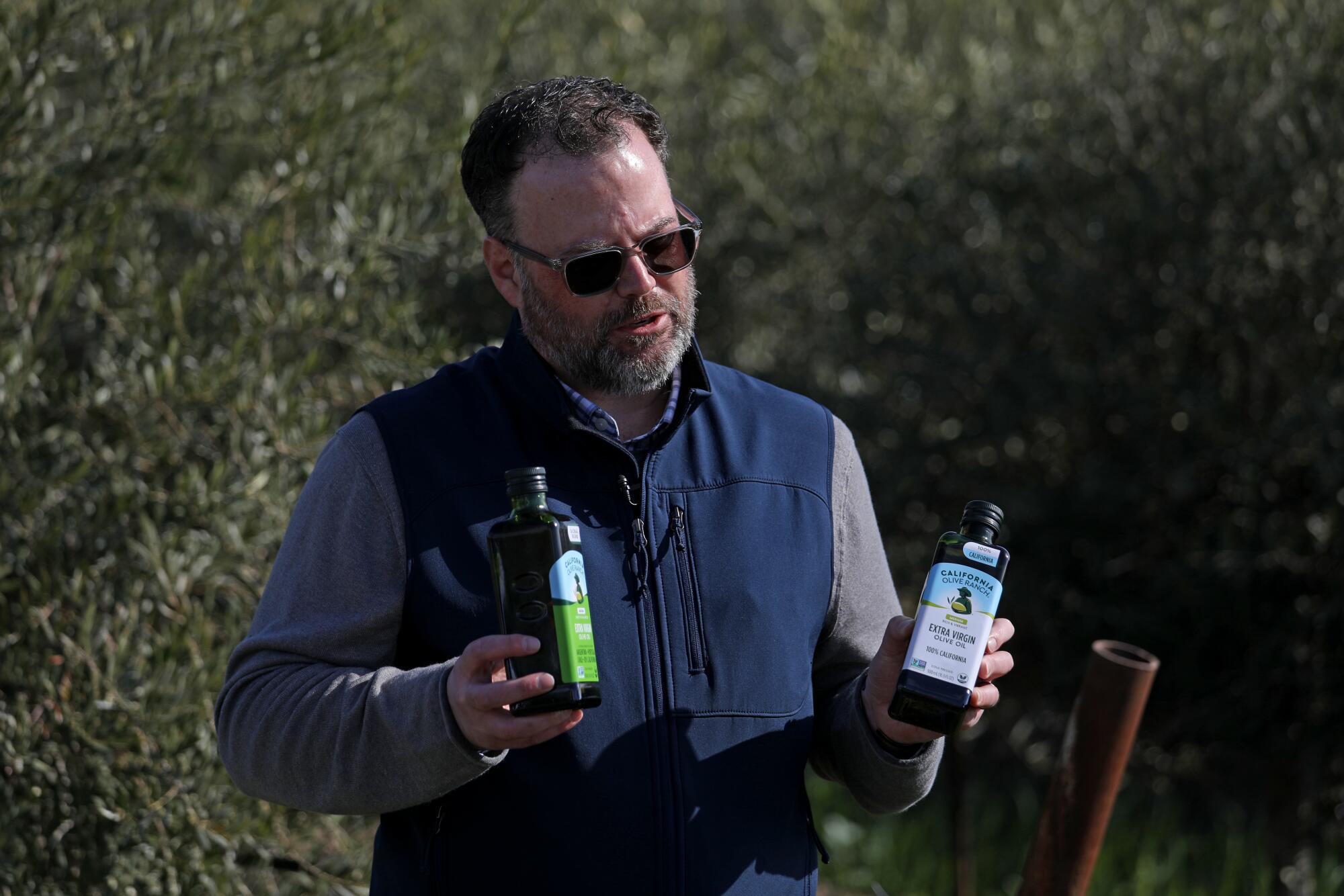
There were just 900 acres of olive trees in the state dedicated to oil production when California Olive Ranch was formed as a local business in 1998, according to company Chief Executive Michael Fox. It drove the footprint of the industry to more than 15,000 acres in the state, he said. The company and its affiliate farmers now harvest 7 million olive trees in California.
When drought hit in 2018 and the olive harvest plummeted, California Olive Ranch was in a bind. It could no longer fill its orders using California olives alone.
Mining firms want to scrape the seabed for minerals used in electric car batteries. Scientists worry about conflicts of interest with the gatekeeper to mining permits.
“To lose the spaces that we would have lost on the shelves?” said Fox. “There was potential that we would lose them forever to other importers.” The company instead ramped up production of global blends combining California olives with fruit from places such as Portugal, Argentina and Chile.
The move drew ire from the smaller California olive oil companies. They had to cut production amid the drought, and seeing imported oil branded as “California” on the shelves pushed them to get political.
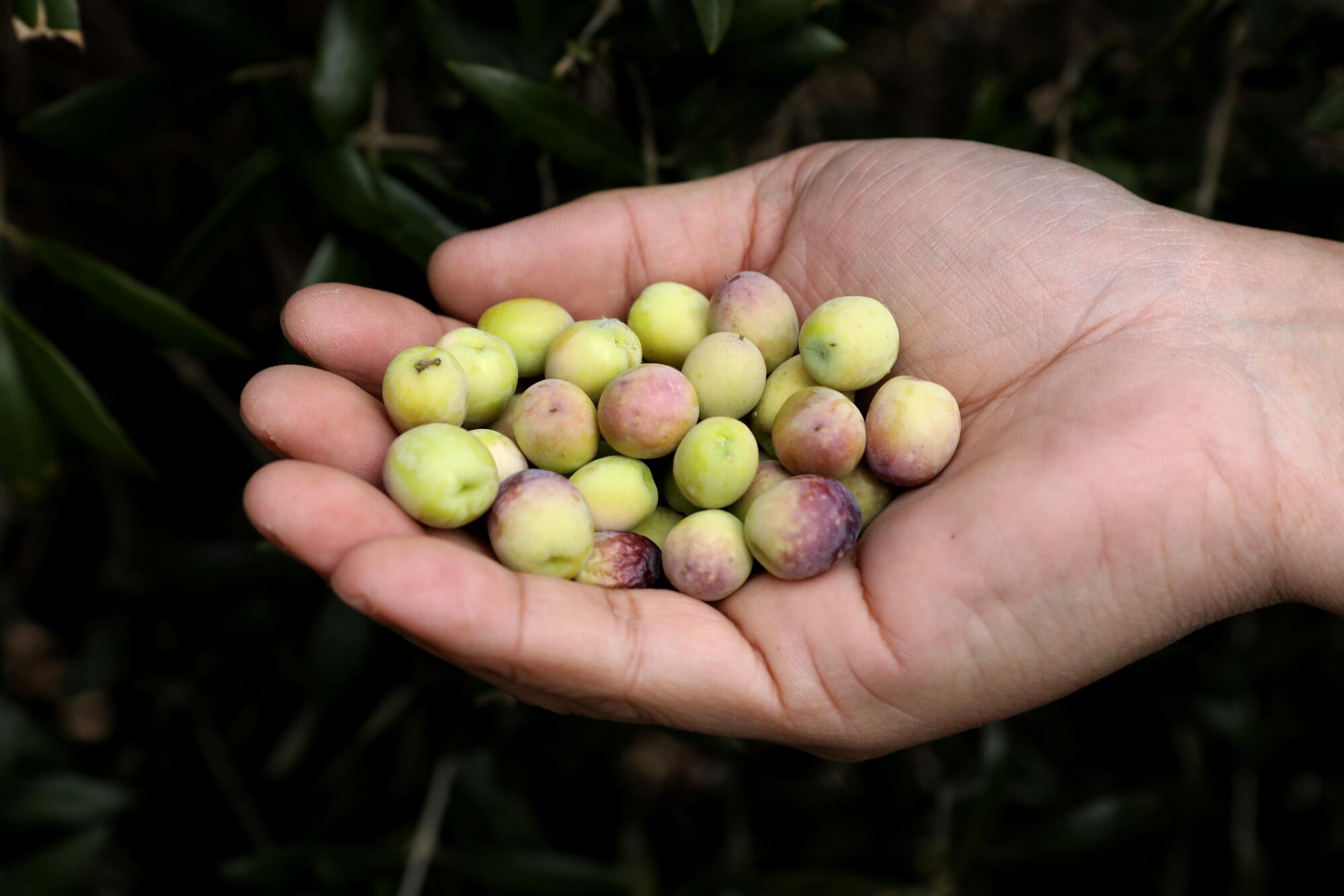
“We farm, and farming is an art,” said Assemblywoman Cecilia Aguiar-Curry (D-Winters), a walnut and almond farmer who took up the cause of the small olive oil producers in her backyard. “We love our dirt and we love our product. To have a hedge fund come in and all of a sudden take over is a bit frustrating for those of us here that are farmers.”
Fox bristles at the charge, arguing that while there may be out-of-state investment, “we are a California company run by Californians.”
He says his company has done as much as any producer in the state to burnish the California extra virgin brand, pushing regulators to impose strict quality controls for anything labeled as such.
At a Thornton grove that supplies California Olive Ranch, Fox points out sustainable growing practices and the processes the company and its contractors use to harvest the olives rapidly so they avoid getting overripe or fermenting.
As the company aggressively promotes the California brand and drives expansion, sales are increasing rapidly for the entire industry in the state, not just California Olive Ranch. A federal lobbying effort the company is helping spearhead would create a national standard for extra virgin olive oil based on California’s guidelines. The proposal, Fox said, would force the downgrading of some of the imported products currently marked extra virgin, creating more opportunity for every California producer.
‘We farm, and farming is an art. We love our dirt and we love our product. To have a hedge fund come in and all of a sudden take over is a bit frustrating for those of us here that are farmers.’
— Assemblywoman Cecilia Aguiar-Curry (D-Winters)
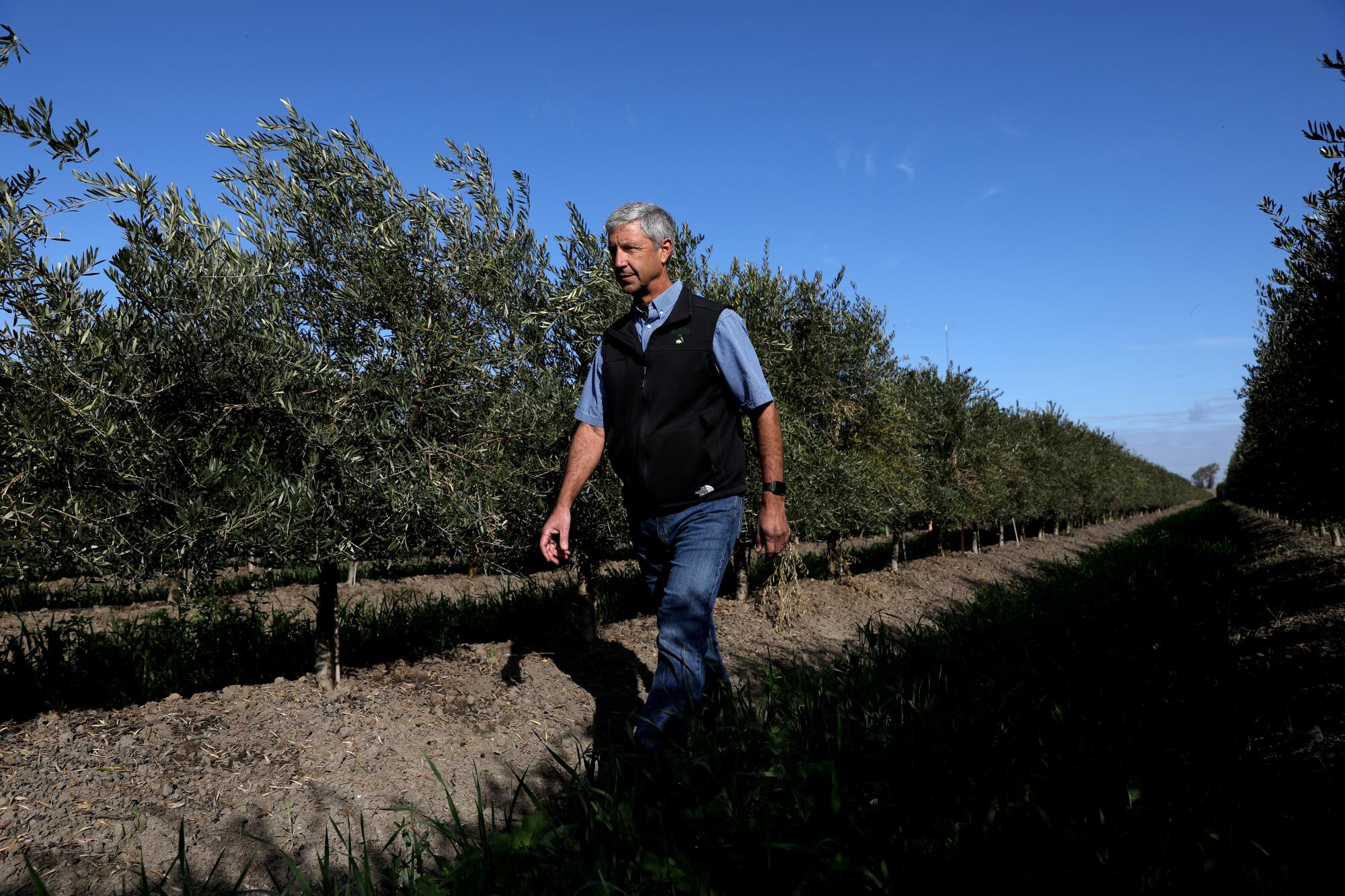
But Fox’s company viewed the labeling proposal in the state — the first draft of which would have prohibited the company from selling any global blend under its California Olive Ranch name — as an existential threat. The fight got nasty in Sacramento, drawing expensive lobbyists and ideological warriors from far and wide.
The Washington Legal Foundation, a business rights group based in the nation’s capital, declared the bill an outrageous and illegal incursion. It suggested the measure could jeopardize brands such as Kentucky Fried Chicken and California Pizza Kitchen, neither of which source their foods entirely from the places for which they are named.
Lawyers in opposition asserted the proposal would violate the 1st Amendment free speech rights of California Olive Ranch.
California sparked a national push to ban gas lines into homes. Its success hinges on persuading home cooks the gas stove is obsolete.
The labeling law that ultimately passed was scaled back. It forces California Olive Ranch to change its global blend labels but not drop the company name from them. The company is also adding a “smart” label that consumers can scan with their phones to learn about the groves where the olives are grown.
Although nobody has sued claiming constitutional violations, and the law has hardly threatened the livelihood of Kentucky Fried Chicken, California Olive Ranch is not entirely satisfied with it, nor are the boutique producers.
‘It is extremely important we protect the California brand.’
— Samantha Dorsey, president of McEvoy Ranch
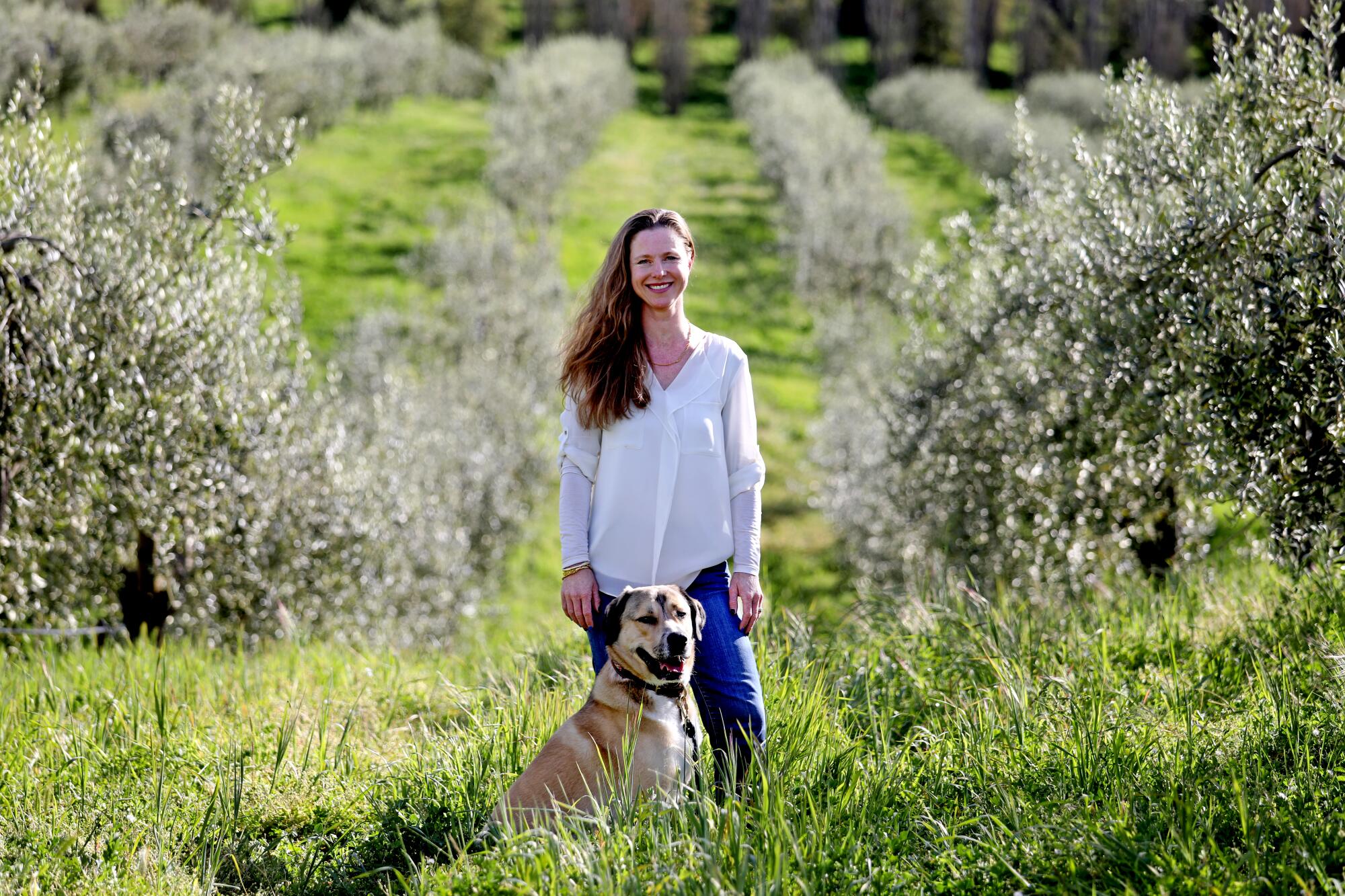
“When a customer leaves our tasting room and goes home and stops at the grocery store and they see a liter of ‘California’ olive oil being sold for $7.99 or some extremely low price, it’s very hard for us to be selling what our consumers think is a commensurate product for significantly more money,” Dorsey said.
As resentment in the olive oil world continues to simmer, the broader fight over food labels is moving onto new battlefields.
Ecuador just blocked the registration of the trademark “Kraft Parmesan Cheese” at the behest of the Parmigiano Reggiano Cheese Consortium, which argued that the American dairy giant is freeloading off the reputation Italian artisans built. “Kraft Foods Group Brands, LLC, is a company domiciled in the United States of America, a place that does not have any relationship with Italy, much less with the origin of the cheese Parmigiano Reggiano,” the Ecuador ruling said.
French and Swiss cheese producers from Gruyeres, Switzerland, have raised a stink about American companies using the region’s name for products made in the U.S. But their legal claim melted down in a Virginia federal court a few months ago when a judge ruled that the Europeans no longer have any particular claim to the name, as it is already used so commonly in labeling cheese not from there.
The meat industry has its own beef. It involves the surge in popularity of meat alternative products like Tofurky and the Impossible Burger. Oklahoma lawmakers declared such products a risk to unsuspecting meat consumers in a 2020 law called the Meat Consumers Protection Act. It requires alternative meat makers to note on their labels that a product is vegan or vegetarian in typeface at least as large as the brand name.
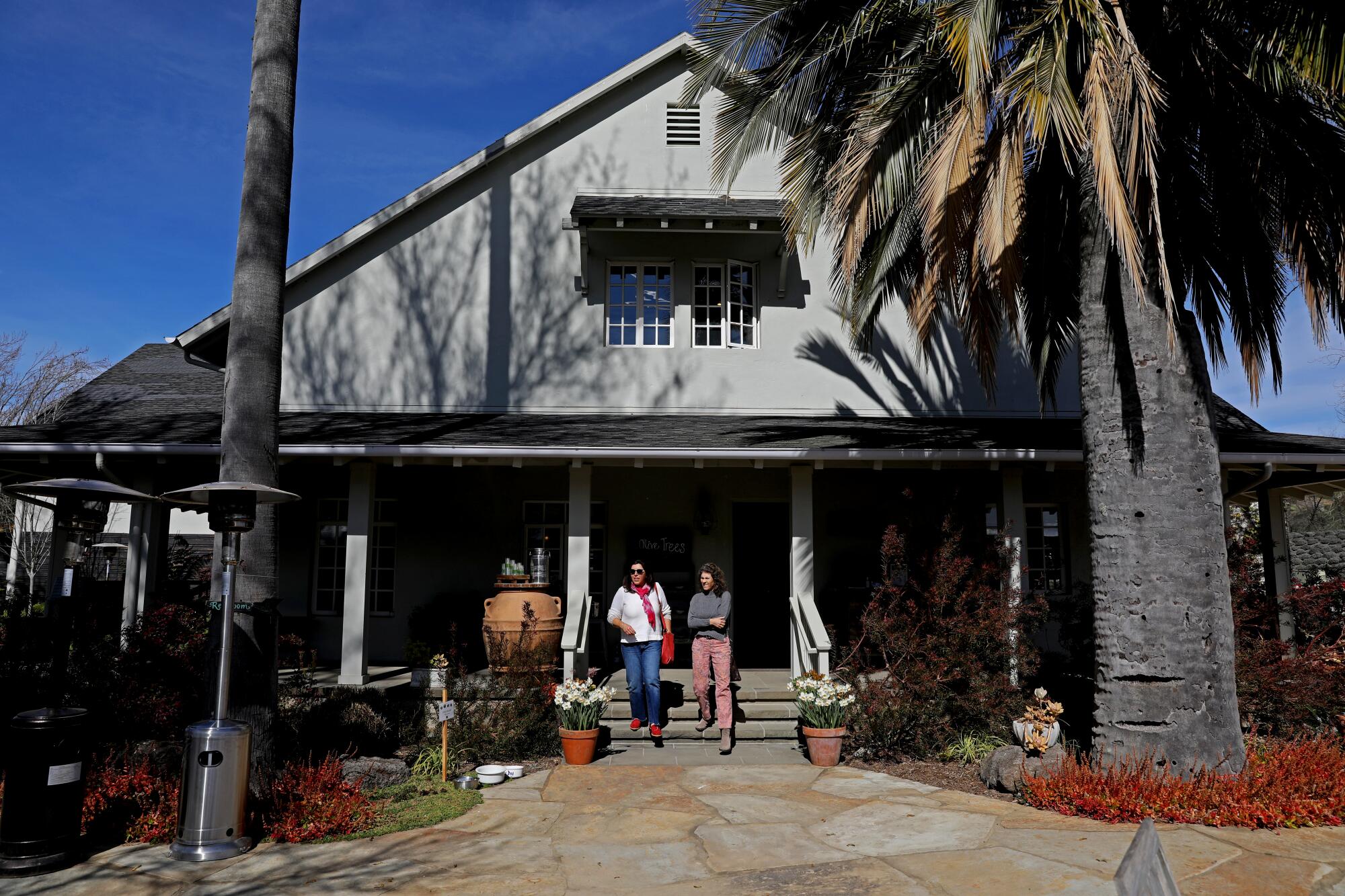
Tofurky‘s maker is working with other vegan food producers and the Animal Legal Defense Fund to overturn the legislation. In November, they filed a federal lawsuit in Oklahoma. That didn’t stop the Kansas House of Representatives in March from approving its own bill aimed at protecting consumers who the state’s lawmakers appear to worry are at risk of mistaking a plant-based steak for a porterhouse.
The fights over food labels are also continuing in California. Aguiar-Curry, the lawmaker who championed the olive oil bill, is now proposing another measure aimed at rooting impostors from the California food scene.
It is on behalf of an industry that is hoping to ride the wave that made California olive oil — and, before that, California wines — into valued and sought-after labels.
“We’re going to do agave,” Aguiar-Curry said of her plan to make it illegal to label as Californian agave spirits styled after tequila and mezcal if the plant was grown elsewhere. “I was approached by a gentleman that grows agave and distills it. And, lo and behold, I didn’t realize how many distilleries that are in California…. This is becoming important to them.”
More to Read
Get the L.A. Times Politics newsletter
Deeply reported insights into legislation, politics and policy from Sacramento, Washington and beyond. In your inbox three times per week.
You may occasionally receive promotional content from the Los Angeles Times.
